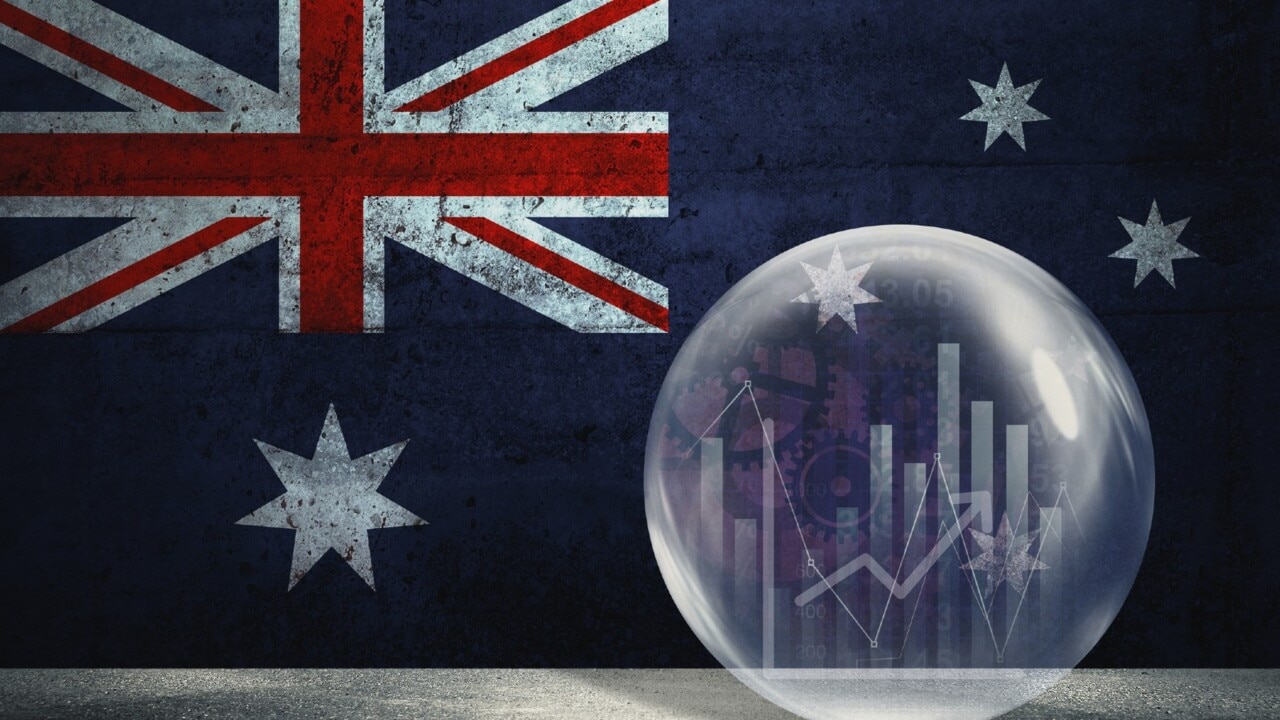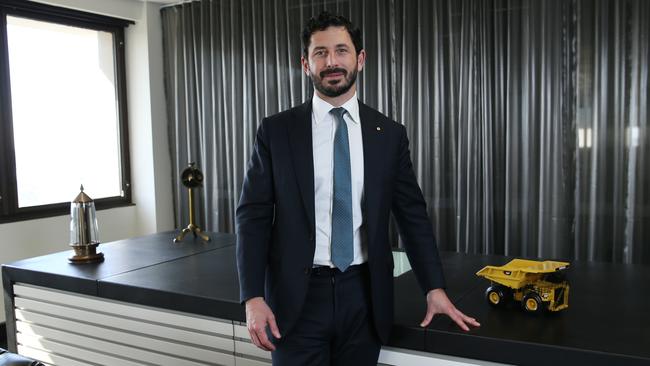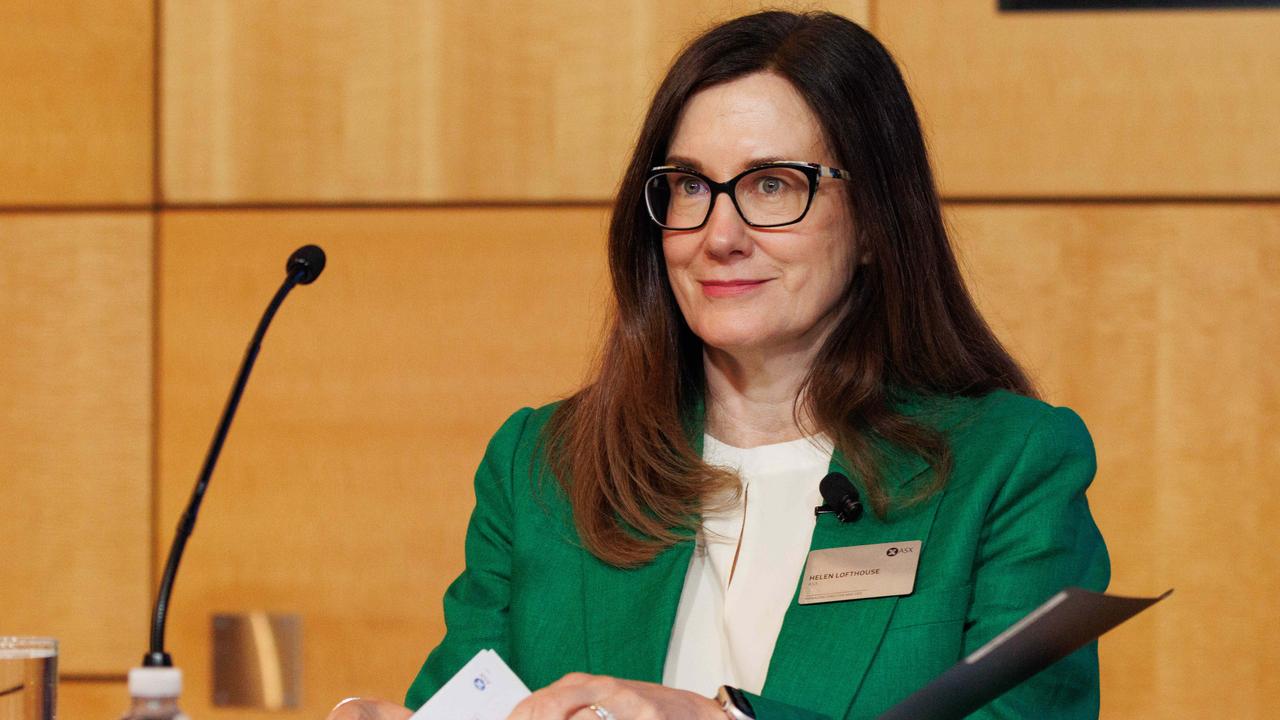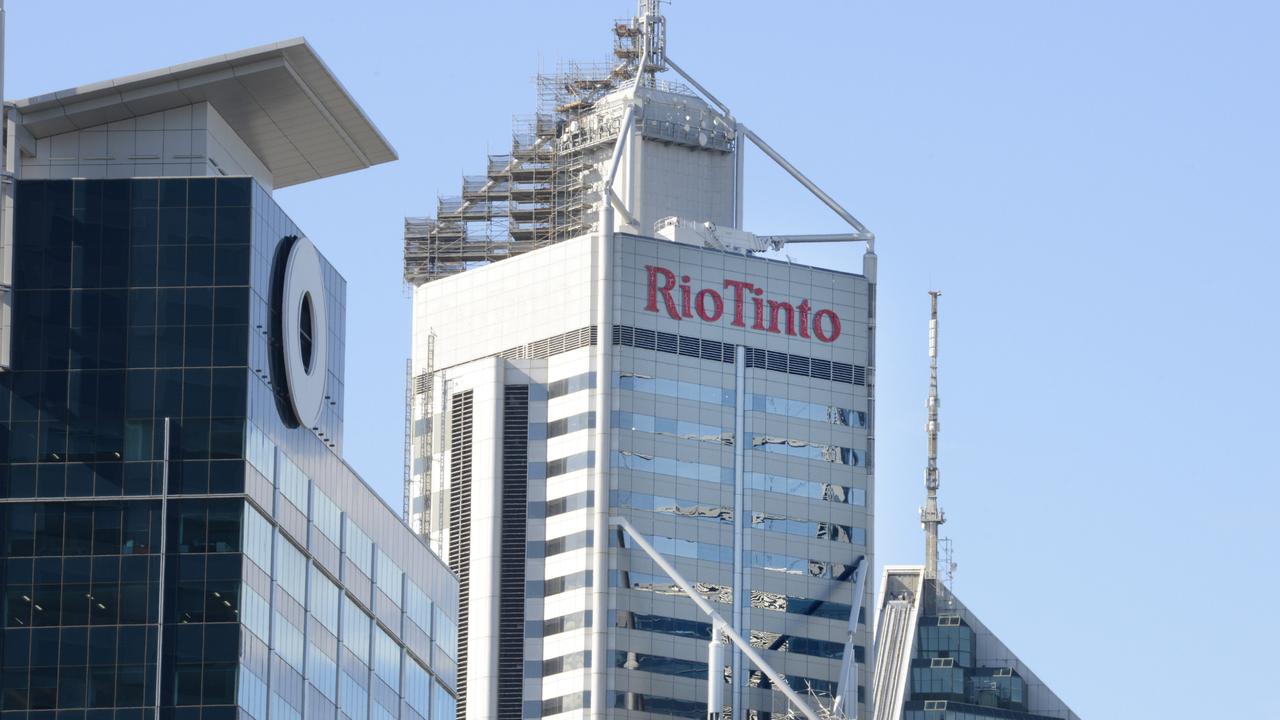Seven’s Ryan Stokes fears economic slump on the back of rapid rate rises; urges caution in axing infrastructure projects
Seven Group boss Ryan Stokes has good news for his shareholders with an earnings upgrade, but has ‘fears’ for the economy over spiralling rate rises, warning it will ‘hurt’ parts of the economy.

As Australians grapple with the rising cost of living and housing crisis, the boss of one of the nation’s top conglomerates Ryan Stokes says he is “fearful” that soaring interest rates and cuts in government spending on infrastructure will inflict “pain” across the economy.
Mr Stokes, who runs his billionaire-family listed vehicle Seven Group, said that while most understood that the central bank raised interest rates to try to curb spending, there was a lack of acknowledgment that such a move will deliberately cause pain to many families.
“I’m fearful about the rapid increase in rates … I am concerned about what it means for the broader economy,” Mr Stokes told The Australian after Seven Group’s annual shareholder meeting. “We need to brace for the impact and the pain felt across the economy,”
The Reserve Bank has raised rates 13 times since May last year as it grapples with stubbornly high inflation.
While house prices have remained stubbornly high, Mr Stokes said the rate rises are going to become “quite painful” for a number of parts of the economy over the next four to six months.
“If you think about what it means from a consumer mortgage perspective, it’s more than a threefold increase within the space of over 12 months,” said Mr Stokes. “That’s a pretty monumental step change and I think it’s going to be really challenging to absorb.”
Mr Stokes also warned any government to cuts to infrastructure spending could also be inflationary, after Infrastructure Minister Catherine King announced she will axe 50 projects from the Commonwealth’s $120bn capital works pipeline.
“This notion of infrastructure investment being inflationary is fundamentally wrong. Infrastructure is an investment, not an expenditure government money goes out, but it’s going into something that has lasting benefits. If there is a productivity gain associated with infrastructure, then that in itself has deflationary attributes.”

Seven is well positioned to see the impact of a slowing economy because of its exposure to mining, industrials, construction and media.
Mr Stokes said advertising – a key revenue stream for its Seven West Media unit – was where the risk was “most pronounced.” SWM owns Seven Network, and The West Australian.
Fortunately for the Stokes family and other investors in Seven, the company makes the bulk of its money from its WesTrac unit, which is the seller and repairer of Caterpillar trucks and heavy machinery predominantly used in mining. It also owns Coates, the country’s largest industrial and general equipment hire business; a majority shareholding in construction company Boral, and a 30 per cent stake in oil and gas company Beach Energy
On Thursday, the company said its focus on an “owner-driven” mindset had helped drive margins higher, triggering an upgrade in earnings before interest and tax, despite difficult market conditions in sectors such as media.
Mr Stokes said the company now expected “high single to low teen EBIT growth in full year 2024,” up from its early forecast of high single-digit growth.
Seven Group shares rose 1.5 per cent to $30.39 per share on the news.
Investor Jun Bei Liu from Tribeca Alpha Plus Fund, one of Australia’s longest-running equity long-short funds, has been an outspoken supporter of Seven’s owner-driven approach and ability to turn companies around. Ms Liu said she believes Seven has more good news to come.
“I think they are still very conservative in terms of the upgrade,” said Ms Liue.
“That’s just the style of management which is good because you don’t want us to fly away with expectations, and it gives them more flexibility further down the track to upgrade, which they had been doing for a very long time. It’s pleasing to see that, and it’s a combination of everything’s going well, not just one division.”

Mr Stokes said WesTrac had made a “very strong start to full year 2024” as servicing of Caterpillar products rose on a lift in thermal coal and iron ore production.
Mr Stokes also addressed the recent sell down of 1 per cent of construction company Boral. Mr Stokes said while Boral’s “share price appreciation has been encouraging” it did not seem to factor in short or medium term market risk, hence the decision to reduce Seven’s shareholding at a 69 per cent premium to its last buy-in price.
However, Seven “will retain control and continue to consolidate Boral’s earnings,” Mr Stokes said.
Seven’s decision to install new management at Boral and refocusing the company on its core Australian building and construction businesses has started to pay off.
Earlier this week, Boral upgraded its earnings forecast by 6 to 10 per cent after a better than expected result over July-October, announcing it expected its 2023-24 underlying EBIT to be in the range of $300m-$330m.
Now Seven is following a similar game plan at troubled oil and gas company Beach Energy, where just last month Mr Stokes stepped in as interim chairman.
Since joining the board in July, Mr Stokes has gotten rid of the company’s CEO and now its chairman after ongoing disappointment with the company’s performance.
“The Boral approach is a little bit the operating model,” said Mr Stokes of his move to clear the decks at Beach and drive change. “We’re very happy that shareholders are comfortable with that position.”
It’s not quiet at Seven’s media unit, either. SWM this week muscled into the battle playing out in commercial radio, snapping up shares in ARN Media – owner of KIIS and Pure Gold stations -which is in turn trying to buy South Cross Media – owner of stations Triple M and Hit.
Radio broadcasters facing headwinds from the weak economic conditions and disruption from digital businesses have been over sold by investors.




To join the conversation, please log in. Don't have an account? Register
Join the conversation, you are commenting as Logout